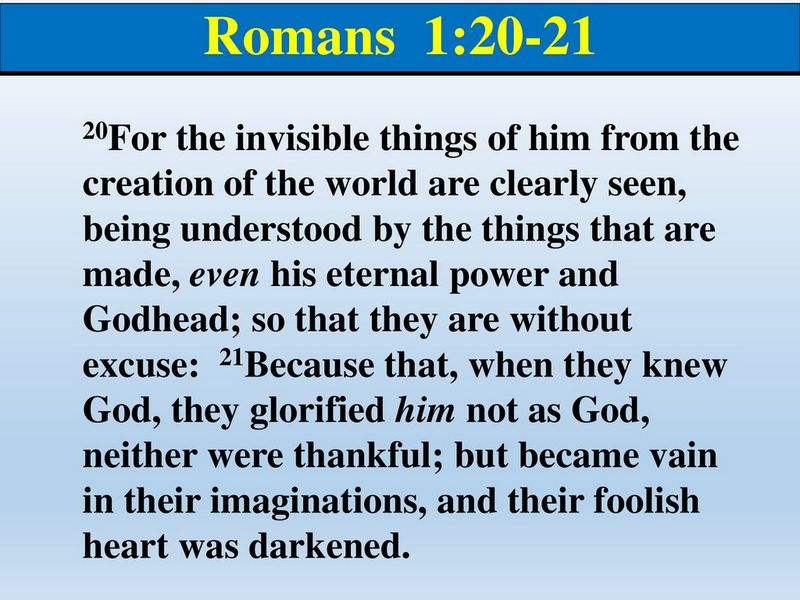
Elizabeth Prata, an Evangelical Calvinist and the author of The End Time blog, becomes the latest person to attempt to delegitimize and explain away the storylines of Evangelicals-turned-atheists. No matter what we say about how we lived our lives as devoted followers of Jesus and why we later walked (or ran) away from Christianity, Prata knows better. Rather than accept narratives of loss of faith at face value, Prata concocts a strawman of the Evangelical-turned-atheist in her mind so she can make her peculiar theology “fit” our deconversion stories. In her mind, there’s no such thing as an ex-Christian. Anyone who deconverts was never a Christian to start with.
Those who fell away were never really one of Jesus’ elect to begin with.
….
And before the person started falling away, in came sneaky heresies they began listening to. They enjoyed these false teachings and heresies because their darkened heart had never experienced the light.
….
So the progression is: profess Christ by mouth… but since there was no visible fruit to show the state of grace they were claiming on the inside, they were never really saved & regeneration never occurred; fail to walk closely with Jesus by procrastinating in discipleship, Bible study, prayer, and/or worship, furthering the distance between themselves and Jesus; (OR, faithfully attending church and Bible study but due to hard heart always were learning but never able to come to knowledge of the truth); listen to or promote destructive heresies that either they knowingly or unknowingly begin to believe, start doubting Christ’s sufficiency; doubt more, and then slide into apostasy’s full blown renunciation and end up in a state of atheism.
….
The end result of a Christian in name only – that is, one who claimed Jesus but never really believed – and is one who is at risk of being tempted by destructive heresies, and ultimately of apostasy. What comes next is atheism.
Atheism is a natural cul-de-sac in the road away from the cross.
….
Which, I suspect, could be one of the reasons Peter said it makes a person worse off from what they were before. After apostasy settles in and atheism rears its head, a person is well and truly now in the dangerous pits of despair, misplacing their burgeoning faith in Something for a faith in Nothing that will last forever.
According to Prata, here’s the progression:
- We professed faith in Jesus with our mouths but not our heart
- We had no visible fruit in our lives
- We failed to walk closely with Jesus by procrastinating in discipleship, Bible study, prayer, and/or worship, furthering the distance between ourselves and Jesus
- Or we faithfully attended church and Bible study but due to hardened hearts we always were learning but never able to come to knowledge of the truth
- We listened to and promoted dangerous heresies which we began to believe more and more
- And then, one day we slid right down the proverbial slippery slope into apostasy and atheism
Does this progression remotely describe your journey from Evangelical Christianity to atheism/agnosticism or even liberal Christianity or a different religion altogether? I know it doesn’t mine, not even close. and I suspect it doesn’t describe your journey either. You see, for Prata’s denunciation of us to work, she must paint us as shallow, nominal Christians, not people who were committed, devoted followers of Jesus. She also must paint us as ignorant, poorly taught believers; anything but accepting that we were just as much in love with Jesus as she is; that we were knowledgeable of the teachings of the Bible, just as she is; that we lived our lives in holiness, just as she does.
Regardless of her motivations, Prata is being dishonest with her portrayal of Evangelicals-turned-atheists. If she wants atheists to embrace her peculiar version of Christianity, the first thing she must do is be honest. As long as she deliberately portrays former believers in a dishonest light, it is fair for us to question her moral character. When Prata says she is a Christian, I believe her. I always initially take people at face value. If you say you worship Jesus, I believe you. Who am I to question how people self-identify? I just wish the Elizabeth Pratas of the world would do the same for us non-believers. I am sure she will argue that the Bible says _________! As if that somehow absolves her of how she falsely portrays people different from her. If the goal is honest discourse, then the least any of us can do is listen to those we disagree with and allow them to control their own storyline. If an ancient religious text stands in the way of you being a decent human being, then perhaps it is time to chuck the Bible.
Bruce Gerencser, 68, lives in rural Northwest Ohio with his wife of 47 years. He and his wife have six grown children and sixteen grandchildren. Bruce pastored Evangelical churches for twenty-five years in Ohio, Texas, and Michigan. Bruce left the ministry in 2005, and in 2008 he left Christianity. Bruce is now a humanist and an atheist.
Your comments are welcome and appreciated. All first-time comments are moderated. Please read the commenting rules before commenting.
You can email Bruce via the Contact Form.




